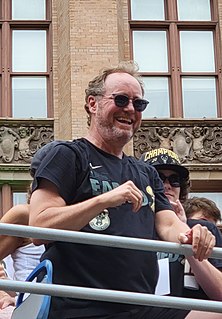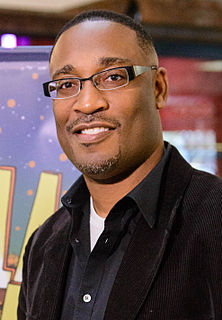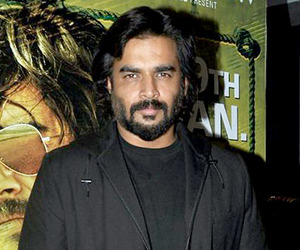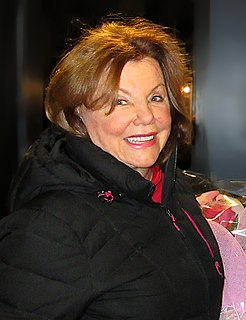A Quote by Lee Isaac Chung
I just hope that in some ways, 'Minari' can pave the way for other filmmakers, other actors, other projects that maybe don't fit within traditional boxes - if it helps those films get made in the future, I'd be so thrilled.
Related Quotes
You work with every actor differently. It's like if you're a mother, if you have children, some children need more discipline. Other children you back off of a little bit and let them be. It's the same way with actors. Some actors need a lot of hand holding. Other actors like to be let be and you let them go. Some actors like to be nudged just a little bit. Some actors don't mind line readings.
I think disease and all the things that we treat are tied to national security in a lot of ways that we maybe don't realize or that the American people don't realize. If other countries have a chance to be stable, then that helps us. If there are ways we can prevent if there are ways we can help other countries defeat diseases, we're about to totally eradicate polio. And can you imagine? That would be so terrific.
I think in some ways, I would go back home, and I didn't really quite fit in and couldn't - didn't have a person to bounce those experiences off of. So I felt a little bit trapped within me, and it made me feel lonely because I really couldn't - the things that were exciting to me, I couldn't really share those with another kid and that other kid understand that.
Neil [Simon] was considered our greatest [living playwright] at the time [of their marriage]. Maybe he still is; I don't know. But anyway, he was hugely successful, and I just kind of got folded into that. And in some ways, he protected me, but in other ways, I wasn't fully able to step out, you know? He didn't want me to go away so much. The work that we did together was great, and I don't regret it, but what I am saying is that I didn't get an opportunity to explore some other areas that were offered to me early on. I took what I might call a U-turn.
For some reason at Sundance, more than other festivals that I'm aware of, you find filmmakers rushing to screen works that sometimes aren't completed. In my seven years of programming at Toronto, I'm not aware of any documentaries that went back for serious editing after their premiere - other than those presented as works-in-progress. But at Sundance every year there seems to be a few films that push the deadline so hard that they get taken back to the edit room afterwards.






































